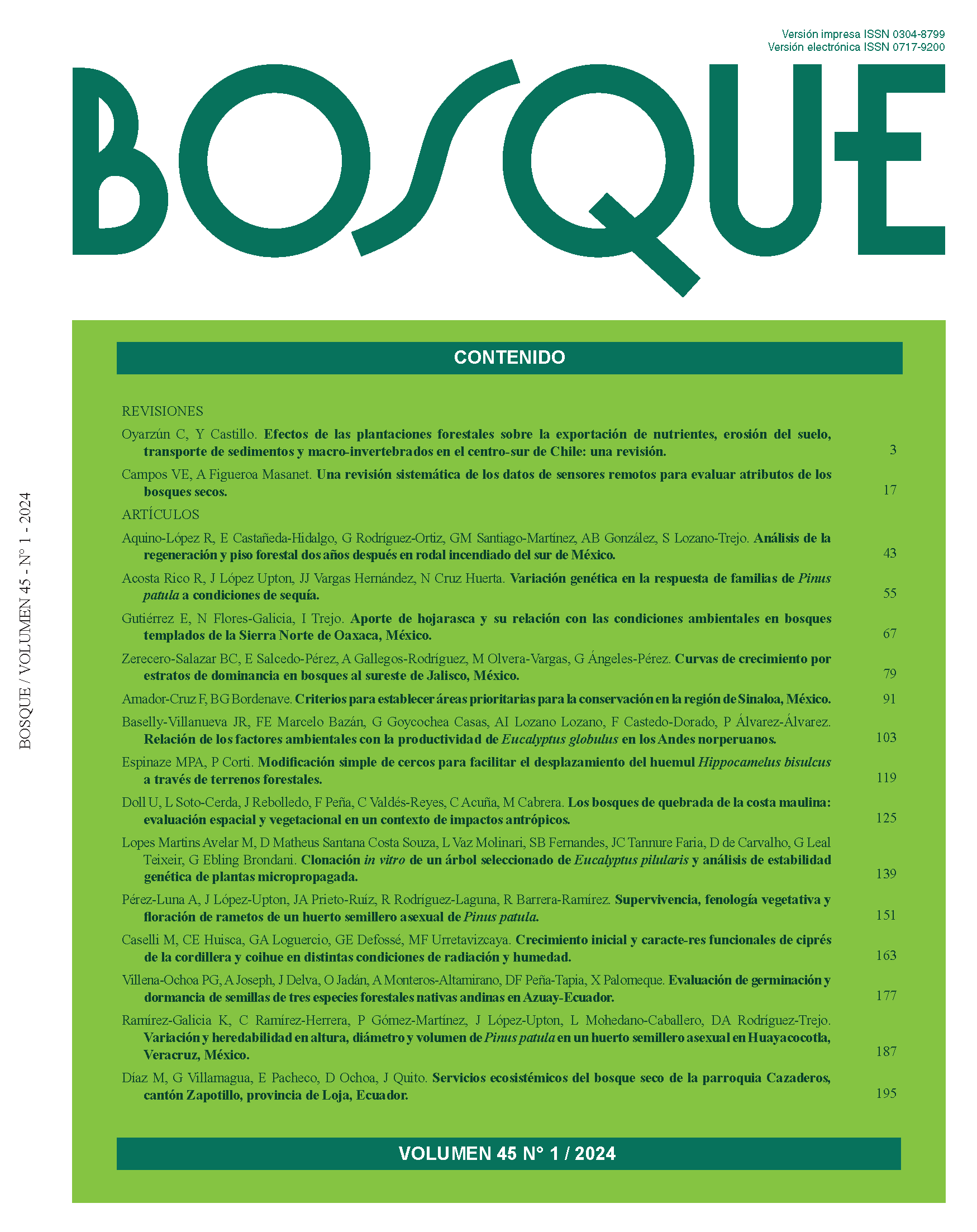Evaluación de germinación y dormancia de semillas de tres especies forestales nativas andinas en Azuay-Ecuador
Contenido principal del artículo
Resumen
Procesos fisiológicos como la germinación y dormancia en semillas bajo condiciones controladas de especies forestales andinas son escasamente conocidos. El objetivo de la presente investigación fue evaluar en tres especies forestales andinas: Myrcianthes rhopaloides, Oreocallis grandiflora y Weinmannia fagaroides, tratamientos pre-germinativos, químicos y físicos en relación con la germinación y dormancia. En primer lugar, las semillas fueron desinfectadas y luego colocadas en cajas Petri, para evaluar la germinación con: a) estratificación fría, b) estratificación caliente húmeda, c) inmersión en AG3 a 270 ppm y d) escarificación ácida (inmersión en H2SO4 al 10 %). En una cámara de crecimiento bajo condiciones ambientales controladas se monitoreó la germinación durante 30 días. La dormancia física de las semillas fue evaluada mediante una prueba de imbibición. La dormancia morfológica se evaluó utilizando 100 semillas y 20 embriones por especie que fueron extraídos y medidos con un estereoscopio electrónico. Los resultados muestran que las semillas de las especies en estudio incrementaron el porcentaje y velocidad de la germinación cuando se aplicó el ácido giberélico en comparación con los demás tratamientos, mientras que el efecto de la escarificación ácida fue significativamente menor en todas las especies. Así mismo, se encontró que las semillas carecen de dormancia física y morfológica, sin embargo, al analizar el comportamiento de las semillas en ácido se sugiere la presencia de una dormancia fisiológica. Estos resultados apoyan al conocimiento de esas especies forestales andinas con fines de conservación y producción de plantas para la reforestación.


 https://orcid.org/0000-0002-3444-617X
https://orcid.org/0000-0002-3444-617X